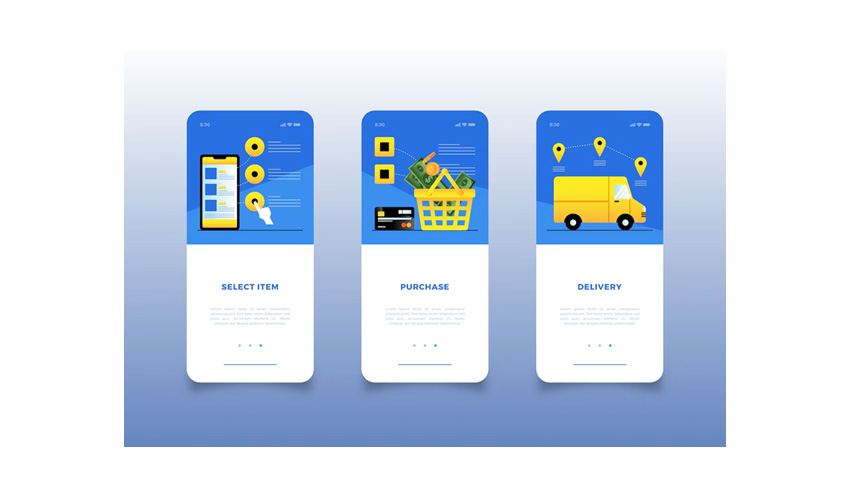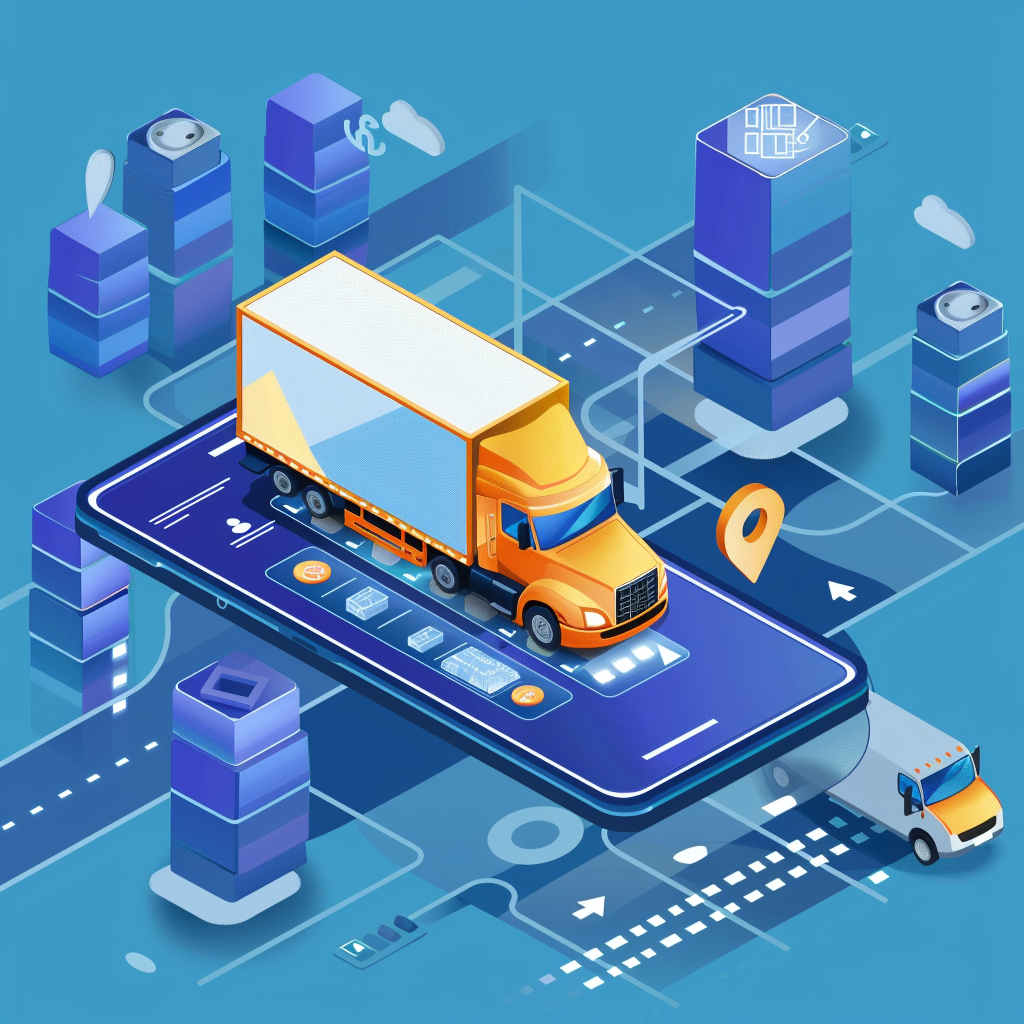Mobile Apps are the leading tools that have transformed the prospects of the logistics and supply chain industry. From enhancing productivity and growth opportunities, these apps have completely revolutionized transportation handling, making the process seamless. In this article, we are going to give you a comprehensive analysis of how mobile apps have become an imperative part of the logistics industry. So, let’s begin!
The Rise of Mobile Apps in Logistics
Mobile app developers have been crucial players in this transformation of the logistics industry. Switching to logistics mobile apps is not just a trend to follow, but a fundamental change that completely transforms it into a customer-centric industry.

By leveraging these apps, businesses can significantly increase efficiency, reduce costs, and improve customer satisfaction. Moreover, a wide user base, real-time tracking, optimized delivery routes, and enhanced service quality solidify its industry rise.
Benefits of Logistic Mobile Apps
Here are the key benefits logistics mobile apps offer.

Integrating Real-Time Data
Real-time tracking is one of the remarkable features logistics mobile apps offer. Users can access everything from tracking the location to speed, along with the route and estimated arrival time of their shipment.
Moreover, it immediately notifies users about any disruptions in the delivery process. Logistics companies can track shipments using GPS technology to ensure a seamless user experience.
Enhance Customer Experience
Logistic mobile apps provide transparency to customers throughout the entire journey of their package. Customers can track when their shipment is arriving.
This enables businesses to avoid delays, resolve issues promptly, and maintain uninterrupted operations.
Seamless Inventory Management
In logistics, inventory management is a crucial yet complex step. Mobile apps help businesses easily track available inventory and restock items as needed.
It avoids the businesses from scenarios like out-of-stock or over-stocking, ensuring that the cargo is monitored effectively.
Quick And Accurate Processing
Businesses can access delivery information on their mobile apps. This enables them to eliminate manual processes and make quick decisions.
It allows them to confirm orders instantly, reduce processing errors, and automate data entries accurately. > Mobile-friendly delivery management software allows them to confirm orders instantly, reduce processing errors, and automate data entries accurately.
Case Study: Companies Using Mobile Apps In The Logistics
1. Amazon
Amazon, the world’s leading e-commerce company, delivers orders to customers efficiently and precisely with its logistics team. Yet, it faces significant challenges in terms of route planning, higher operational costs, and inconsistent deliveries.
Additionally, users faced coordination issues with the delivery drivers. It has retarded the overall logistic process.
App Development
With the increasing demand for more seamless and efficient logistics operations, Amazon has developed its own logistics mobile app, the Amazon Flex app. This app allows delivery drivers to access delivery routes, scan packages, and notify of delivery status in real-time.
Results
As a result of their new logistics app:
- The delivery routines and schedules are optimized, resulting in a quick delivery time.
- The real-time updates on apps related to the orders and delivery time boost customer satisfaction.
- Amazon Flex is a 4.5-star* rating app on iOS and the Play Store.
- Of the $574 billion in revenue in 2023, 15% is attributed to its online presence.
2. DHL
DHL Express is an international specialist that fulfills the shipment needs of customers and businesses. It’s considered the fastest and most reliable shipment service provider, claiming to deliver across 220 countries.
App Development
In the modern era, efficient shipping operations are essential for customers, small businesses, and enterprises. The DHL Express Mobile app is a dynamic solution that elevates the shipping experience.
Results
The new logistics mobile app:
- Offers its users flexibility in terms of communication, allowing them to choose the mode of notification as per their preferences.
- Makes it easy for users to track, trace, and manage their product deliveries, thus enhancing security and convenience.
- The DHL Express App is a 4.3-star-rated app on iOS and the Google Play Store.
Challenges Faced By Logistic Mobile Apps
Mobile apps in logistics and supply chain management utilize vast amounts of data, which have raised significant privacy and security concerns. There are various challenges faced by logistics mobile apps:
- Complexity: Navigating congested and highly populated urban areas can be challenging for logistics mobile apps.
- High Expectations: Users usually set their expectations too high for the apps, such as same-day delivery and transparent service. It eventually lowers the chance of customer satisfaction.
- Cost and Complexity: Developing and maintaining a sturdy logistics mobile app can be costly. From developing apps to maintaining data security and continuously evolving in response to market needs, the entire process is both expensive and technically challenging.
Future Outlooks And Trends
As technology evolves, logistics mobile apps seem to be facilitating businesses’ optimization of routes, elimination of costs, and increased efficiency of their logistics operations. This industry is expected to grow at a 5.6% compound annual growth rate (CAGR) from 2023 to 2028.
With AI and machine learning integration, logistics mobile apps can predict future trends and allow users to make real-time decisions. As users’ needs evolve, mobile app developers will need to incorporate changes that enhance the customer experience and eliminate errors.








